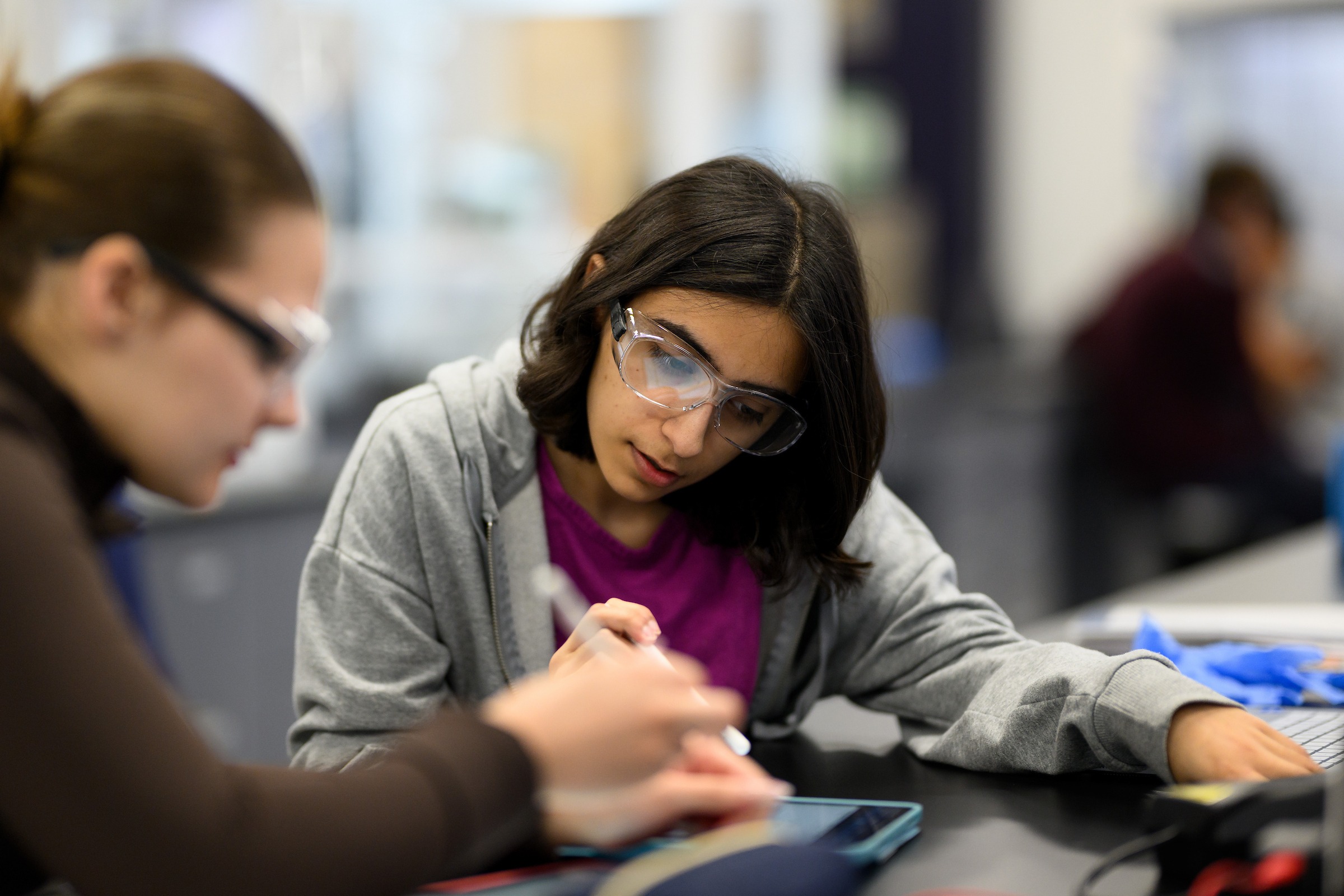Butler University will launch an Engineering program in fall 2026, expanding its commitment to high-impact, interdisciplinary STEM education. This initiative offers students the opportunity to earn rigorous Bachelor of Science degrees in Mechanical Engineering, Chemical Engineering, and Bioengineering rooted in Butler’s hallmark liberal arts traditions.
Butler’s decision to launch an Engineering program directly addresses a statewide need and builds on a 25-year history of engineering at Butler through the Engineering Dual Degree Program. According to the Indiana Economic Development Corporation (IEDC), there is a significant gap between the number of engineering positions available and the number of qualified graduates remaining in the state to fill them. The shortage impacts various sectors, including manufacturing, life sciences, and technology. Factors fueling Indiana’s need for additional engineers include:
- Indiana’s strong manufacturing base and growth in high-tech industries
- The need for engineering expertise to address Indiana’s infrastructure issues, including roads, bridges, and water systems
- Brain Drain—more than half of engineering students currently studying at Indiana colleges and universities are from out-of-state and are less likely to remain in Indiana after graduation
- The lack of early STEM exploration in Indiana schools can hinder the development of a strong pipeline of future engineers
Housed in the College of Liberal Arts and Sciences, Butler’s Engineering program stands apart from traditional models by embedding a liberal arts foundation into every student’s experience. In addition to rigorous technical training, students will develop critical thinking, ethical decision-making, and communication skills—attributes consistently ranked by employers as essential for long-term career growth and leadership potential. This interdisciplinary approach prepares graduates to become human-centered engineers who not only solve complex engineering problems but also lead diverse teams, navigate ambiguity, and consider the broader social impact of their work. Students will explore mathematics, physics, computer science, and core engineering principles in small, hands-on classes, supported by personalized faculty mentorship and opportunities for community-engaged learning.
“We are equipping students not only to solve technical problems, but to think, communicate, and act ethically as professionals and citizens,” Jay Howard, Ph.D., Butler’s Interim Provost, said. “The blend of engineering fundamentals with liberal arts skills fosters engineers who understand both innovation and its social impact.”
Each of the three degrees offered through Butler’s Engineering Program feature a strong emphasis in digital technology to ensure students are on the cutting edge of advancements in the field.
Bioengineering students will learn how to design solutions that improve lives—whether through medical devices, prosthetics, agriculture, food technology, or environmental technologies. Students will gain technical and human-focused skills to tackle complex challenges at the intersection of biology and engineering.
Students majoring in Chemical Engineering will explore the science behind everyday products—from pharmaceuticals and cosmetics to food and sustainable materials. This degree builds on Butler’s nationally recognized Chemistry program and benefits from close proximity to global industry leaders like Lilly and Corteva Agriscience.
Mechanical Engineering students will learn about the interactions between energy, motion, and the material world and use computer-aided design (CAD) tools to develop efficient and reliable mechanical solutions. These foundational skills are directly tied to real-world applications in industries such as automotive, aerospace, energy, and manufacturing, where mechanical engineers innovate everything from engines and turbines to robotics and prosthetics. Classes will be taught in Butler’s new, state-of-the-art Sciences Complex, with access to industry-grade simulators and cutting-edge digital tools.
All three Engineering degrees are structured to be completed in four years. Students interested in adding a second major can work with academic advisors to create a guaranteed five-year path. Study abroad options are also available for Engineering students who wish to stay on a four-year track.
Jeffrey Carvell, Ph.D., has been selected to serve as chair of Butler’s new Engineering program. Dr. Carvell comes to Butler from Marian University, where he most recently served as interim dean of the Witchger School of Engineering. He earned his Ph.D. and M.S. in Physics from Purdue University, a B.S. in Electrical Engineering from Purdue University, and a B.S. in Physics from Butler University.
“I’m thrilled to launch Butler’s new Engineering program at such a pivotal time for Indiana,” Dr. Carvell said. “The demand for skilled engineers has never been greater, and our program is uniquely positioned to prepare graduates who not only have the technical expertise but also the critical thinking and communication skills to lead. Being in Indianapolis—at the center of innovation, industry, and opportunity—gives our students an incredible advantage as they begin building meaningful and impactful careers.”
Butler’s latest addition builds upon recent investments—including a multi-million-dollar sciences complex modernization—to position the University as a leader in STEM in Central Indiana. The program supports regional workforce needs while enriching Butler’s academic portfolio.
The new Engineering Program follows other recent academic program launches like Butler’s Bachelor of Science in Nursing, which will welcome its first cohort later this month. These initiatives reflect the University’s bold investment in high-demand fields and its commitment to growing a highly skilled workforce in Central Indiana.
Butler is now accepting applications for fall 2026. Incoming first-year students can apply at butler.edu/apply. For questions about Butler’s new Engineering Program, please email engineering@butler.edu.


